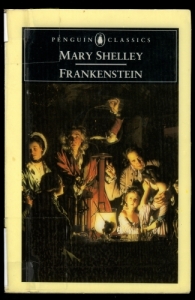
In Europe: Travels Through the Twentieth Century
Geert Mak
Translated by Sam Garrett
(Pantheon Books, New York City: 2007)
First published in the Netherlands as In Europa by Uitgeverij Atlas, Amsterdam, c. 2004 Geert Mak.
READ: April 2009
Heather Mallick, one of my favourite Viewpoint & Analysis columnists on the CBC website, reviewed this book about 6 months ago, and I was immediately intrigued. The book instantly went on my must-read list, though in the form of a request on a long hold list at the public library.
Well, Christmas - as I like to call it when I get an email about a long-forgotten book now being held for me at the library - arrived at the beginning of April. I sunk into this book with very little hesitation, and found it quite hard to get out.
Geert Mak, a journalist for a Dutch newspaper and an acclaimed Dutch author, spent the year 1999 travelling all across Europe in search of eyewitnesses and contemporary accounts of historical events from the past century. He takes us to so many places and introduces us to so many people. The 20th century was anything but dull for Europeans. But Mak's book is not a mere recitation of facts, dates, and events. He assumes his reader already knows the basic outlines of modern history, and so, while he does spend some time giving historical and political background, he mostly explores events through the people who experienced them.
20th century Europe was not always a happy place to be, depending on where you ended up. There was so much bloodshed, so much violence, so much turmoil. Mak does a very good job at putting a human face on much of this. On the one hand, that makes things like the rise of Nazism and Hitler in 1930s socialist Germany easier to understand; on the other, it also makes things like "the Troubles" in Ireland that much more horrifying, gut-wrenching, and disturbing. Mak makes recent European history personal.
Weighing in at just over 800 pages, this is a huge book! I had to read it far too quickly, and had to absorb a lot of information, drama, and emotion in each sitting. Sometimes it overwhelmed me for that reason. But mostly it just compelled me to keep reading (even if that compulsion was occasionally caused by a feeling of "if you keep reading, things must get better"). Mak's writing is lucid and clear, his eye for detail is keen, and he knows how to tell a story in such a way that the events become very personal.






